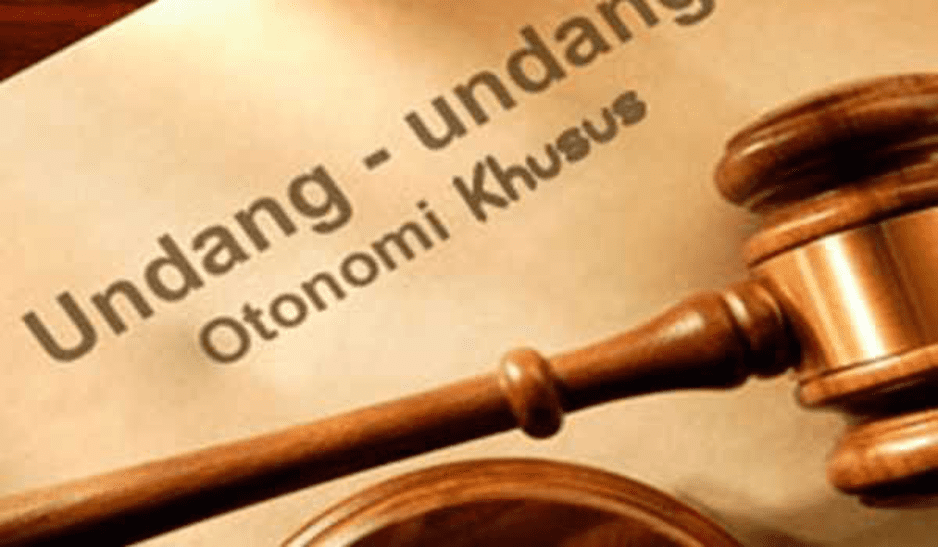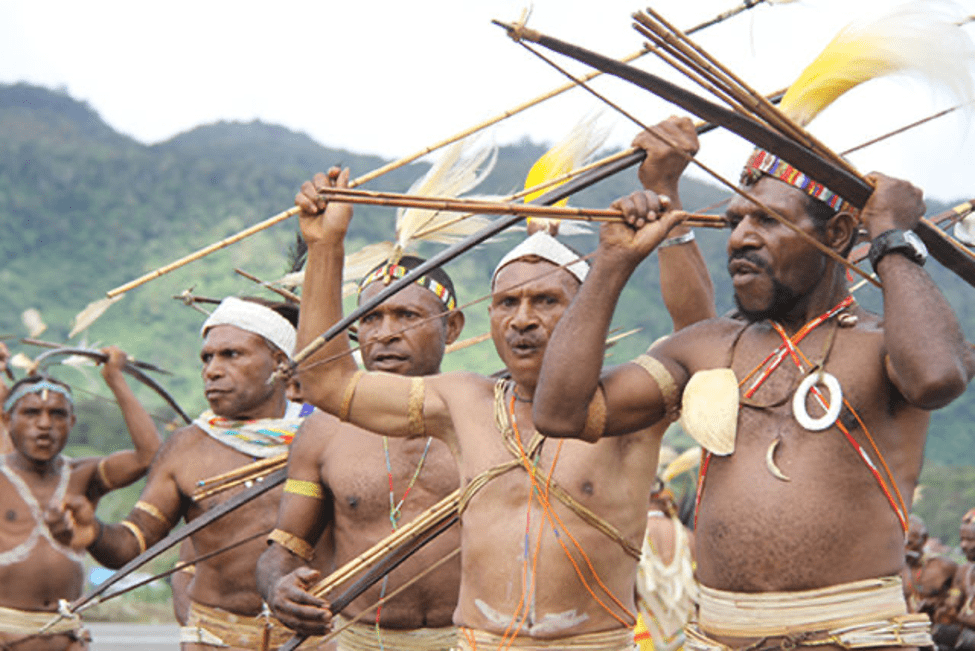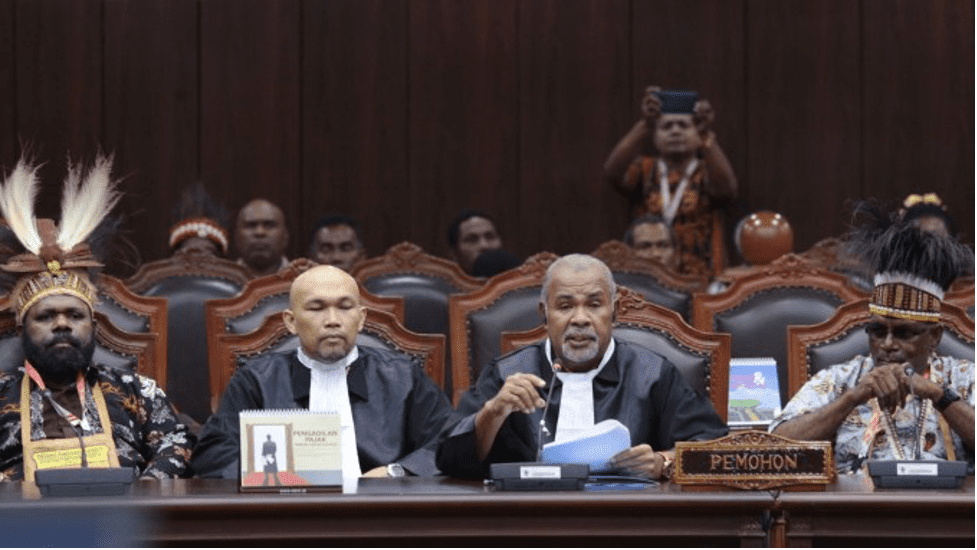The Republic of Indonesia granted Special Autonomy Law (UU Otsus) for Papua province through Law No. 21 of 2001 which has been amended by Perpu No. 1 of 2008. Law 21/2001 consists of 79 articles regulating the authorities of Papua Province in implementing special autonomy.
The law is an admission of additional protection by the government of Indonesia for the Papua territory. It was offered by the government of the fifth President of Indonesia, Megawati (2001-2004). It had been repeatedly rejected by the territory, most notably in 2005 as well as in 2010 when they held Major rallies.
How are the repercussions of this Special Autonomy policy? Can it affect or even improve the welfare of Papua Province?
Background of UU Otsus

Malino conference
As proclaimed on August 17, 1945, the Republic of Indonesia (NKRI) had a right to cover the entire former Dutch East Indies’ territory. From the Malino conference in 1946 and the Round Table Conference (KMB) in 1949, the prominent Indonesian leaders persisted in integrating West Papua into the region of NKRI.
The political decision to unify Papua to become part of NKRI has lofty purposes, but the truth is that various policies haven’t fully enabled the achievement of Papuan people’s welfare.
An opportunity for new thoughts and awareness arises in the momentum of reform in Indonesia. The government moved to solve the major problems of its people to organize a better state and nation. The People’s Consultative Assembly of the Republic of Indonesia (MPR-RI) in 1999 determined the need to grant the Special Autonomy Law of Papua. It was the first step to build people’s trust.
Basic Values of UU Otsus

The UU Otsus of Papua was born from the dissatisfaction of Papuan people with the political, civil, social, cultural, and economic situation in their land. The dissatisfaction was expressed by violence and military forces that increased the cases of human rights violations in Papua.
Through this policy, Indonesia gave the widest possible freedom to the people of Papua to govern themselves, within the framework of NKRI. Basic values of the UU Otsus include:
- The Special Autonomy Law which took effect in Papua and West Papua starting 2001 will end in 2021. UU Otsus for Papua is regulated in Law No. 21/2001 and amendments to Law No. 35/2008.
- The main basic value of the policy is the protection of the rights of indigenous Papuans.
- Protection of the Papuan people’s rights to the water and land in certain boundaries with the natural resources contained therein
- The word “adat” was mentioned 109 times, “adat istiadat” four times, and “Masyarakat adat” 32 times.
- There is a division of authority between the local and central governments. The authority of the central government is only on foreign policy, fiscal and monetary, defense and security, religion, and judicial. Meanwhile, others are regulated by regions.
Violation of the Rights of Indigenous Papuan during the Otsus Era

Indigenous Papuan
In the 20 years of Special Autonomy Law in the land of Papua, the disappointment over the issues of land and forest has never stopped. The conflict between companies and society, also the government occurs in many places—majorly even ends up with violence.
- Detrimental natural sources management
Previously on November 7, 2019, representatives of the indigenous Papuan reported to Komnas HAM in Jakarta that the management of the land and natural resources in Papua was detrimental. The investments in plantations, logging, and mining involving large capital owner are harming and threatening the indigenous people’s living space.
- Deforestation during Special Autonomy Law
According to Forest Watch Indonesia, the rate of deforestation in Papua (2000-2009) was 60,300 hectares per year. The number increased threefold between 2009 and 2013 with 171,900 hectares per year. The rate keeps increasing to the next 2013-2017 period—about 189,300 hectares per year.
The Evaluation of UU Otsus for the Welfare of Papuan People

Evaluation of UU Otsus
There are two main problems behind the reason why we are still talking about strengthening indigenous Papuan people concerning forest conservation nearly 20 years after the Special Autonomy Law was passed:
- The absence of regional regulations which are derivatives of the Otsus policy. Mentioned above that the central government only has five powers. However, the question is, is there any regional regulation to regulate matters outside the five powers?
- Lack of commitment by the government-both central and regional- in implementing the law. In its implementation, the UU Otsus overlaps with other laws in Indonesia.
The civil society movement in Papua is planning to encourage several things: from accommodating the aspirations of the wider community for evaluation, increasing the quality of the Special Autonomy Law revision, to drafting Local Government Regulation.
UU Otsus of Papua is a lex specialist; in their implementation in Papua, all laws that are regulated differently in Indonesia follow the Special Autonomy Law. This analytical content shows that Otsus focuses on indigenous Papuan people. It just needs two prominent things to formulate policies and implement natural resource management in Papua; nature is sustainable, and the community is prosperous.


